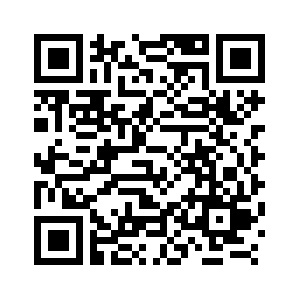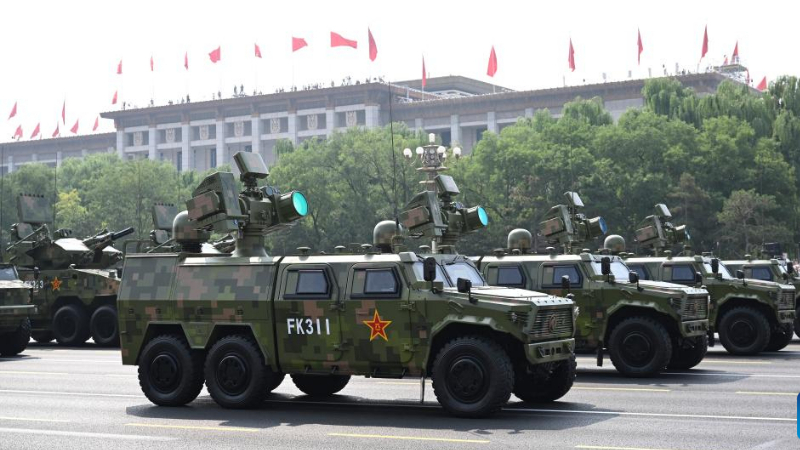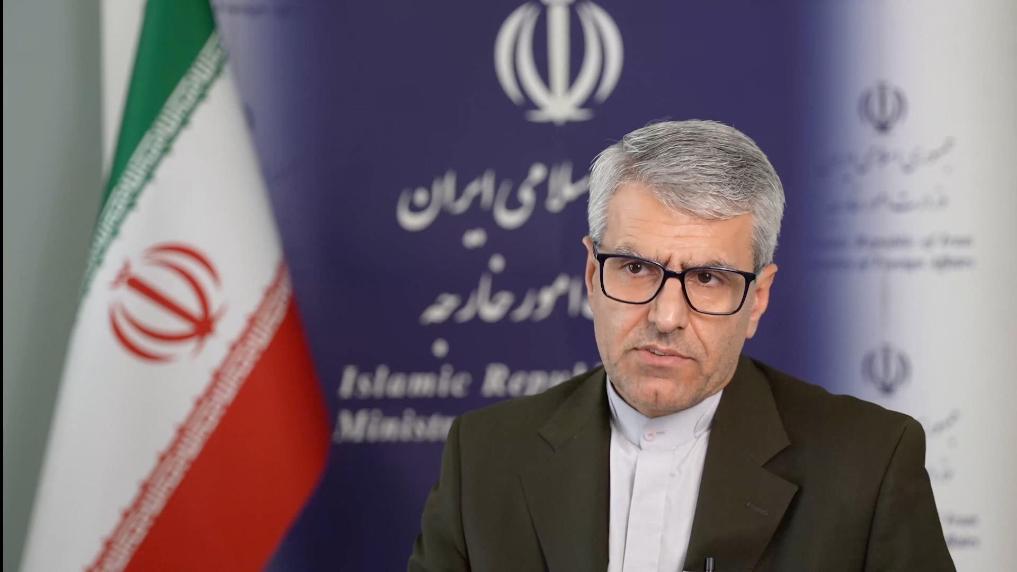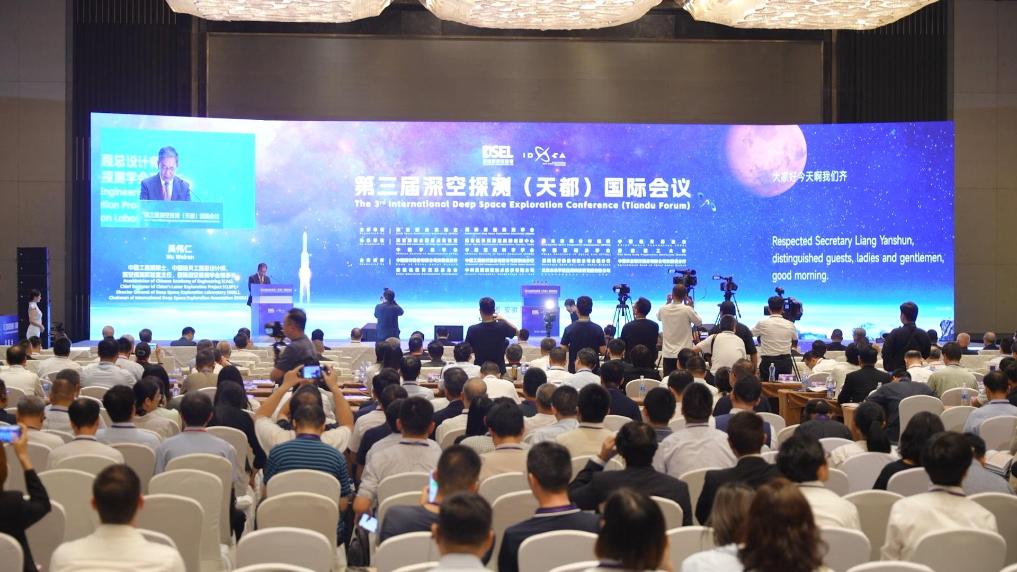Xinhua Headlines: Xinhua think tank report exposes perils of U.S. ideological colonization
Source: Xinhua
Editor: huaxia
2025-09-07 23:06:31
* The United States has long sought to consolidate its hegemony through ideological infiltration and discourse manipulation.
* Driven by hegemonic anxiety, the United States has further escalated cognitive warfare, exploiting artificial intelligence to manipulate the flow of information and shape global perceptions in its favor.
* The United States' colossal national propaganda apparatus serves as the central hub and command for mind colonization.
KUNMING, China, Sept. 7 (Xinhua) -- A think tank report was released Sunday at the Global South Media and Think Tank Forum 2025, which systematically examines the historical roots, operating methods and global risks of the U.S. long-standing campaign for mind colonization.
The report, titled "Colonization of the Mind -- The Means, Roots, and Global Perils of U.S. Cognitive Warfare," was released by Xinhua Institute, a think tank affiliated with Xinhua News Agency, in the southwestern Chinese city of Kunming.
According to the report, the United States has long sought to consolidate its hegemony through ideological infiltration and discourse manipulation. Yet, with the accelerated awakening of the Global South and the decline of U.S. hegemony, its hypocrisy is being exposed.
DARK HISTORY
The seeds of U.S. ideological colonization were sown as early as the nation's founding, the report said.
From the late 18th to the 19th century, the United States pursued relentless territorial expansion under the pretext of "Manifest Destiny." By issuing the "Monroe Doctrine," the United States incorporated Latin America into its sphere of influence under the banners of "opposing European interference" and "America for the Americans."
The U.S. national power surged during the two World Wars, and its ideological exportation during this period laid the historical groundwork for its wholesale pursuit of mind colonization in the decades that followed.
After World War II, the United States tied economic assistance under the Marshall Plan to ideological alignment, consolidating the capitalist bloc against the Soviet Union. During the Cold War, media outlets such as Voice of America and Radio Free Europe inundated socialist countries with propaganda of the "superiority" of the "Free World."
Following the Cold War, U.S. practices only intensified. Under the banner of spreading "democracy" and "freedom," Washington toppled governments and fomented unrest. After the 9/11 attacks, it elevated counterterrorism into the global agenda, seizing the pretext to export its values and wage wars.
In recent years, driven by hegemonic anxiety, the United States has further escalated cognitive warfare, exploiting artificial intelligence to manipulate the flow of information and shape global perceptions in its favor.
The United States has been exporting its political and economic systems and values like "democracy" and "freedom" worldwide, while deliberately deconstructing non-American ideologies and suppressing indigenous cultures to foster global philosophical dependence and obedience.
Through this dual strategy of expansionist construction and destructive deconstruction, Washington's ideological colonization has achieved an impact surpassing that of any previous empire.
ORCHESTRATED SYSTEM
The report revealed that Washington's mind colonization has not been a collection of isolated actions, but a meticulously orchestrated system spanning multiple domains and actors.
The United States' colossal national propaganda apparatus serves as the central hub and command for mind colonization. Under the guidance of the U.S. government, relevant decision-making bodies of the U.S. Congress, the National Security Council, and the U.S. Department of State regularly convene meetings and formulate specific themes and operational objectives, marshal and coordinate resources of all sorts, and collectively advance mind colonization through official means such as bill discussions, legislation enactment and issuance of bans.
Led by the U.S. government, various social entities, including media outlets, think tanks, and non-governmental organizations (NGOs), actively engage in manipulating and controlling public opinion and shaping perceptions, forming a collective force for mind colonization.
NGOs are the key drivers behind the scenes. The National Endowment for Democracy, while nominally independent, is largely funded by Congress and channels resources to political groups, media outlets and civil society organizations in target countries. Similar organizations operate under comparable modalities, advancing ideological agendas and orchestrating "color revolutions" or political movements aligned with U.S. interests.
The media serves as both a conduit for the flow of ideas and a stage for the contention of the minds. The U.S. media outlets convey carefully curated images of the country itself as a bastion of freedom and prosperity while defaming non-Western systems.
Think tanks represent the staunch force actively operating up front. In recent years, a host of think tanks, at the behest of the U.S. government, have provided ammunition for the information warfare and cognitive warfare launched by the U.S. government through such methods as fabricating concepts, putting forward propositions, and publishing reports.
In the digital age, by controlling internet infrastructure, social media platforms and AI-powered algorithms, the United States can monitor, guide and manipulate public opinion with unprecedented precision. Through content moderation, algorithmic curation and the creation of information cocoons, the United States suppresses dissenting voices and amplifies pro-U.S. narratives, advancing its campaign of global ideological colonization.
GLOBAL PERILS
According to the report, the U.S. "mind colonialism" has brought incalculable calamities to countries around the world.
The United States is skilled at implanting American values in "enemy countries" to achieve the goal of subverting the governments concerned.
As American writer William Blum observes in "America's Deadliest Export: Democracy," since the end of World War II, the United States has sought to overthrow more than 50 foreign governments and has brazenly interfered in the elections of at least 30 countries.
The Iraq invasion, justified by the false claim of "weapons of mass destruction" amplified by U.S. media and politicians, exemplifies how Washington shapes lies into a global consensus to legitimize war.
Beyond overthrowing foreign governments and stirring geopolitical conflicts, the deeper harm of U.S. ideological colonization lies in eroding a nation's spiritual independence and cultivating pro-American forces.
Prolonged ideological infiltration has brainwashed certain elites in some developing countries, fostering a cultural domestication syndrome in which they lose national confidence and act as proxies for U.S. interests. This, in turn, cultivates a tendency to acquiesce to U.S. coercion and bullying, eroding the nation's capacity to defend itself.
Moreover, the United States employs mind colonization to steer nations onto development paths unsuited to their conditions by aggressively exporting its economic models, such as the so-called neoliberal Washington Consensus. The result has been frequent economic stagnation and social hardship.
In recent years, the countries of the Global South have increasingly resisted U.S. ideological control and pursued independent development based on their own national conditions and cultural confidence.
As an important member of the Global South, China has put forward a series of proposals, including the Global Development Initiative, the Global Security Initiative, the Global Civilization Initiative and the Global Governance Initiative, based on its own development experience and the common aspirations of the people around the world.
These initiatives provide new ideas and solutions for countries to bust the myths of value, free themselves from dependence of the mind, and embark on a path of independent and autonomous development.
(Video reporters: Chen Yina; Video editors: Wu You, Zhu Cong)■











Comments